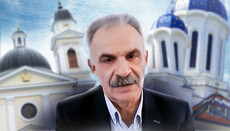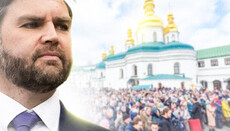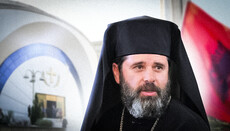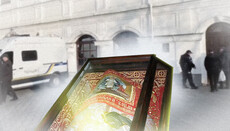Why so few monks in state-favored OCU, but more and more in persecuted UOC?
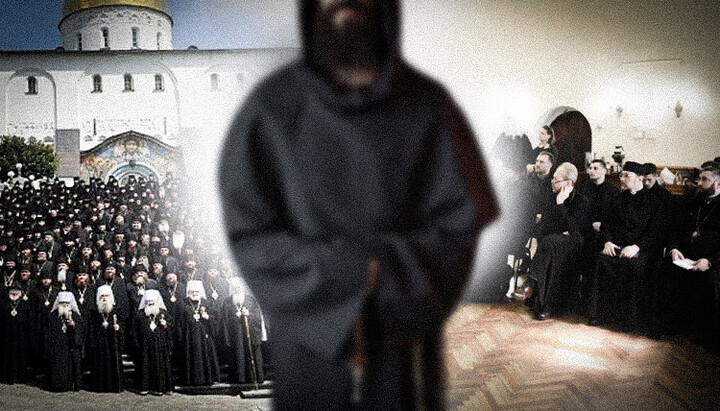
The OCU receives broad support from the authorities, yet monasticism in the structure is barely alive. Meanwhile, in the persecuted UOC, new monastic tonsures take place regularly. Why?
In today’s world, when someone chooses to give up family, career, material goods, and the comforts of “rational society” for a life of prayer in a monastic cell, it always evokes surprise. But these people – monks – are the most powerful testimony that the Church not only exists but breathes, struggles, and triumphs. According to Saint Diadochos of Photiki, only one who has “tasted the sweetness of God in the fullness of His presence” can become a monk.
Monasticism is a special way of life marked by humility, repentance, and spiritual struggle. Its goal is the complete surrender of a person to God. A monk dedicates their life to prayer, fasting, and the perfection of the soul. One cannot become a monk by accident – it requires a long journey within the Church, communion with God through the Sacraments, and detachment from worldly noise. Often, the example of other monks plays a critical role in this decision.
As Metropolitan Anthony of Sourozh said, only someone who sees the light of Christ’s Resurrection in another person’s eyes can be drawn into that same light. Monks are not only examples for those who wish to take vows, but for laypeople as well. Saint John Climacus wrote: “Monks are a light to the laity, and angels are a light to monks.”
Monks are beacons in the night of the world – they shine not for themselves, but to help others not lose their way. That is why, in the Orthodox Church, monasticism is held in special esteem. Monasteries are not shelters for failures, but laboratories of holiness, where human nature is transfigured by grace and directed toward God.
Historically, most early Christian monks were not priests. They retreated into the desert to devote themselves fully to prayer. Over time, disciples gathered around them, forming the first monastic communities. These monks wished to “die to the world”, as Saint Anthony the Great put it – but this “death” was truly a rebirth into a life not scattered by temptation, but focused on union with God.
This life choice is a response to grace. Once a person feels Christ touch their heart, they can no longer live the way they used to. A living Church is not one with grand buildings or impressive programs – but one where people say “yes” to Christ with their entire life.
A sharp contrast is the example of the OCU.
According to official statistics from 2021 (the most recent available), the entire OCU has 233 monastics. If one subtracts the number of bishops (who are technically counted as monastics), that leaves 171 people.
Before the 2018 unification of schismatic groups in Ukraine, there were 240 monks (219 in the UOC-KP and 21 in the UAOC). So, in seven years, the number of monks in the now "unified" OCU has decreased by 7. This speaks volumes: people do not want to take monastic vows in a church structure they do not trust.
A recent “monastic forum” held by the OCU at the Lavra illustrates the issue. It gathered just 4–5 individuals who had taken monastic vows. The event was organized by two synodal departments, the OCU "monastery" at the Kyiv-Pechersk Lavra, the National Reserve, and other affiliated organizations. Yet they could not gather even ten monks. This is unsurprising, as there are simply not enough monks in the OCU to begin with.
Regular photo reports from services at the OCU’s so-called “Kyiv-Pechersk Lavra,” led by former UOC monk Avraamy Lotysh, consistently show only 5–6 familiar faces. This is the “face” of the OCU – despite state-backed efforts to take control of Ukraine’s main shrine.
As of 2022, according to Ukraine's State Service for Ethnopolitics and Freedom of Conscience (DESS), the OCU had 79 monasteries. Dividing 233 by 79, we get less than three monks per monastery. There simply aren’t enough monks to staff the Lavra, let alone any other monastery.
Moreover, there are almost no reports of monastic tonsures being performed in the OCU. In 2024 and 2023, hardly any were recorded. As former OCU cleric Fr. Andriy Shymanovych pointed out:
“There are serious problems – there haven’t been any monastic tonsures in the Kyiv Orthodox Theological Academy for five years. This means young men graduating from seminaries and academies do not want to commit to this structure. That’s a major issue for any Orthodox Church.”
In stark contrast stands the Ukrainian Orthodox Church. Before the war, it had 260 monasteries and 4,630 monastics. Even hostile sources admit this number is likely higher. According to the Greek Catholic outlet RISU, the UOC today has 258 monasteries and 56 sketes, with around 5,000 monks and nuns. But even this seems low – at the 2021 UOC Monastic Congress in the Pochaiv Lavra, around 300 abbots and abbesses participated. That’s more monastic leaders than there are total monks in the OCU.
And that’s not all.
The UOC is experiencing severe persecution – churches are being seized, media attacks abound, and both clergy and laity face insults and threats.
Today, to be a believer in the UOC is not popular. To become a priest or monk often means facing harassment or even danger. And yet, people continue to take monastic vows – in growing numbers.
During just the first month of Great Lent 2025, at least 22 monastic tonsures took place in the UOC. That’s more new monks in one month than took part in the entire OCU’s Lavra forum.
What does this tell us?
As Saint Nicholas of Serbia once said: “Monasticism is not the rule, but the exception that makes the Church what it is.” Put more boldly: if there is no monasticism, there may be no true Church life left.
So, while polls may show nominal public support for the OCU, the deeper spiritual reality speaks otherwise. People do not rush to take monastic vows in a structure where they do not feel the presence of divine life.
True monasticism is testimony to the living presence of God. It is a choice to forsake the world for eternity.
And while the UOC is persecuted, slandered in the media, and deprived of its churches, it has more monks today than in “peaceful” times. This may seem paradoxical – but not in light of Christ’s words:
“Blessed are you when they revile and persecute you, and say all kinds of evil against you falsely for My sake” (Matthew 5:11).
Everything falls into place.
